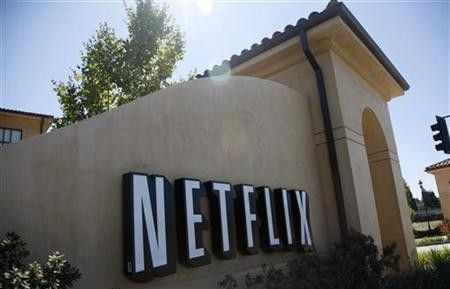Netflix's Financing Prompted by Deteriorating Performance, Liquidity: Analyst

Wedbush Securities believes Netflix Inc.'s (NASDAQ: NFLX) $400-million concurrent common stock and convertible notes financing were motivated by the company's deteriorating business performance, which in turn triggered liquidity concerns.
Netflix raised $200 million (2.86 million shares at $70 per share) through the registered sale of common stock to T. Rowe Price Associates, and $200 million through a private placement of convertible notes to Technology Crossover Ventures.
The convertible notes do not bear interest, will mature on Dec. 1, 2018, and have an initial conversion price of $85.80 per share (11.6553 shares of common stock per $1,000 principal amount of notes). Both deals are expected to close on or about Nov. 28.
It appears to us that today's transactions were the result of Netflix's deteriorating performance and the corresponding impact on its liquidity. Netflix ended third quarter of 2011 with $366 million of cash and short-term investments, said Michael Pachter, an analyst at Wedbush Securities.
Pachter said the company's balance sheet showed amounts owed for streaming rights (accounts payable of $654 million and non-current liabilities of $348 million), with another $3.46 billion in commitments and contingencies.
These liabilities total roughly 12 times of the company's cash and short-term investments at the end of third quarter, and recent domestic subscriber attrition and planned increased spending on streaming rights appear to have resulted in rapidly declining liquidity in fourth quarter, forcing the company to raise capital at less-than-optimal terms, said Pachter.
Netflix previously stated that it had 13.93 million domestic DVD subscribers and 21.45 million streaming subscribers at the end of third quarter, with domestic DVD subscribers expected to decline to range of 10.3 million to 11.3 million.
This means that 2.63 million to 3.63 million DVD subscribers were expected to trade down or quit in the fourth quarter. In Pachter's view, the vast majority of the lost DVD subscribers will be hybrid subscribers triggered by the 60 percent September price increase and Qwikster debacle.
Pachter said each million hybrid subscribers that trades down to a single plan (streaming-only or DVD-only) costs Netflix $8 million per month, or $96 million per year, in foregone revenue (without significant cost savings); each million hybrid subscribers that quits costs Netflix $16 million per month, or $192 million per year.
In a Form S-3, Netflix disclosed that it expected to incur consolidated net losses for fiscal 2012 (compared to consensus estimates for EPS of $1.11) due to relatively flat consolidated revenues and increased international investment. The company had previously disclosed only that it expected to be unprofitable on a global basis for a few quarters starting in the first quarter of 2012.
The brokerage reduced its 2011 EPS estimate for Netflix to $4.13 from $4.16, while lowering its its 2012 per share estimate to a loss of $0.35 from profit of $0.45. The brokerage also cut its 2012 revenue estimate to $3.570 billion from $3.636 billion.
We are lowering our estimates for 2012 to reflect guidance and dilution. Our revised estimates are based upon lower subscriber growth and increased estimates for cost of subscription revenues. Also, lowering our 2011 fourth quarter EPS estimate to $0.61 from $0.62 to reflect dilution, said Pachter.
In addition, the brokerage lowered its price target on shares of Netflix to $45 from $82.50 while maintaining its neutral rating.
Netflix stock fell 6.83 percent to $69.38 in the pre-market trading on the NASDAQ Stock Market.
© Copyright IBTimes 2024. All rights reserved.





















